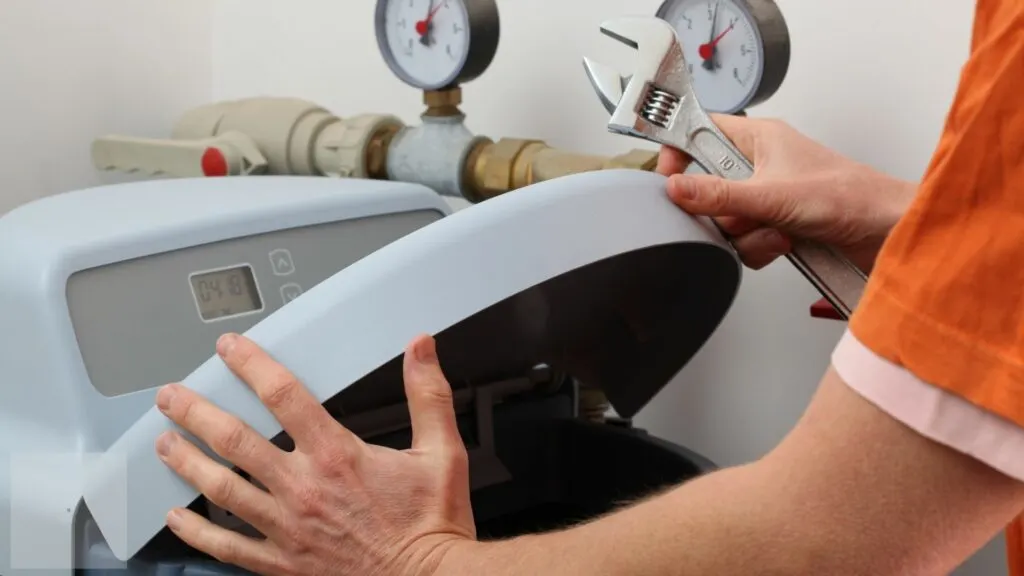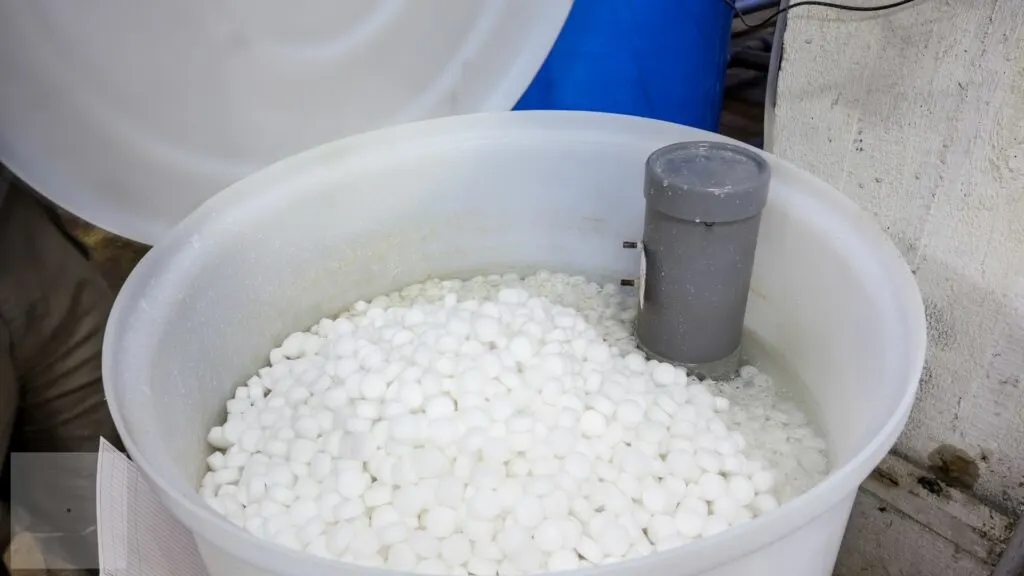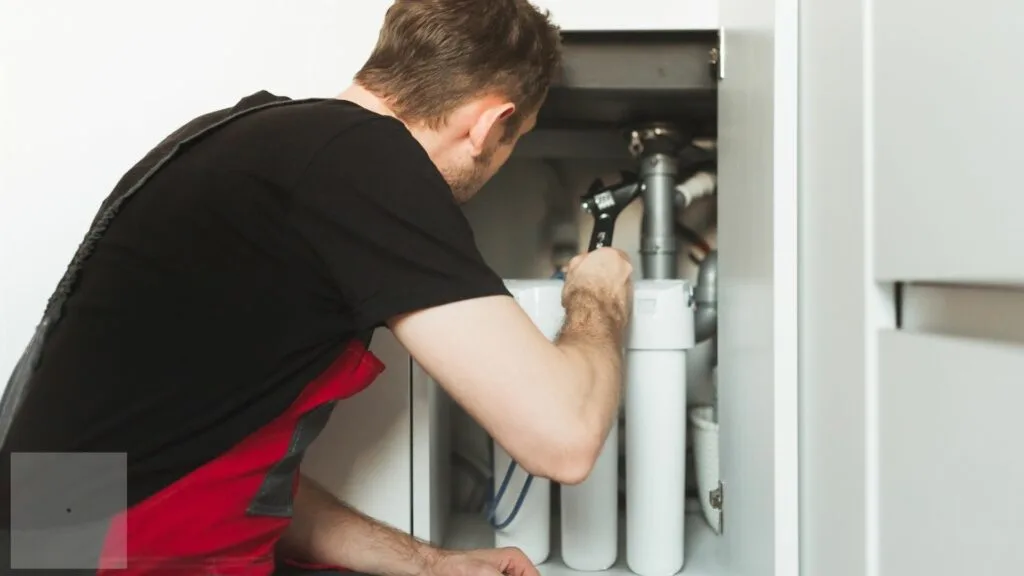Hard water creates numerous problems in homes. Clogged pipes, dull hair, and spotty dishes are common annoyances caused by hard water. This type of water contains high levels of minerals, primarily calcium and magnesium.
These minerals build up inside pipes, appliances, and fixtures, leading to decreased efficiency, costly repairs, and potential health risks. This article offers practical solutions to soften hard water and protect your home and appliances from damage.

Understanding Hard Water
Hard water poses several challenges for homeowners. To effectively address these issues, it’s essential to know what hard water is.
1. What Is Hard Water?
Hard water contains high levels of minerals, primarily calcium and magnesium. These minerals enter the water supply through underground rock formations. Water hardness varies by region.
Water hardness measurement helps determine the severity of the issue. Water hardness is measured in grains per gallon (gpg) or milligrams per liter (mg/L). Water with a hardness level below 60 mg/L is considered soft. Levels between 60 and 120 mg/L are moderately hard, and anything above 120 mg/L is considered hard water.
To test water hardness, you can purchase a home water hardness test kit or send a water sample to a laboratory for analysis. Home test kits provide a general estimate, while laboratory tests offer precise measurements. Knowing your water hardness level helps you determine the most effective water-softening solution. Click here for a comprehensive breakdown of typical water-softening solutions you can use for your home.
2. The Impact Of Hard Water
Hard water negatively affects various aspects of home life. Understanding these impacts helps you appreciate the need for water softening.
Hard water damages household appliances. Mineral buildup clogs water heaters, reducing efficiency and shortening lifespan. Dishwashers leave spots on dishes due to mineral residue. Washing machines produce less clean laundry and experience increased wear and tear from hard water.
Plumbing systems suffer from hard water. Mineral deposits clog pipes, leading to reduced water pressure and potential blockages. Scale buildup in water heaters reduces efficiency and increases the risk of costly repairs.
While hard water consumption doesn’t pose a direct health risk, it affects skin and hair. Hard water leaves skin feeling dry and itchy. Hair becomes dull and difficult to manage.
Aesthetically, hard water is unpleasant. Spotty dishes, dull laundry, and soap scum buildup create a less-than-ideal living environment.
Softening Hard Water: Practical Solutions

Hard water requires effective solutions to protect your home and appliances. Several methods can help soften hard water.
3. DIY Methods For Softening Hard Water
Water softeners are popular options for reducing hard water’s impact. Salt-based softeners effectively remove calcium and magnesium ions by exchanging them with sodium ions. These systems require regular salt replenishment to maintain optimal performance. Salt-free softeners use a physical process to change the structure of minerals, preventing them from bonding and causing scale buildup. While salt-free softeners don’t remove minerals, they can help reduce their impact on appliances and plumbing.
Water filters effectively remove impurities, including minerals that cause hard water problems. Reverse osmosis (RO) filters utilize a semi-permeable membrane to filter out contaminants, producing high-quality drinking water. However, RO systems can be less efficient in generating wastewater. Distillation involves boiling water to create steam, which is then condensed to produce pure water. While effective, distillation is energy-intensive and may not be practical for everyday use.
Natural remedies provide budget-friendly alternatives for addressing minor hard water issues. Vinegar, lemon juice, and baking soda can effectively remove mineral deposits from faucets and showerheads when used regularly. However, these methods are labor-intensive and may not completely soften water throughout your home. For more significant hard water problems, professional water-softening solutions are recommended.
4. Preventing Hard Water Buildup
Regular maintenance is crucial for preventing hard water issues. Consistently cleaning and maintaining appliances removes mineral buildup, extending their lifespan and improving performance. Pay close attention to water heaters, dishwashers, and washing machines, as these appliances are particularly susceptible to hard water damage. Descaling heating elements, cleaning filters, and following manufacturer recommendations are essential for optimal appliance care.
Water softeners effectively reduce mineral content in water, safeguarding your appliances from the harmful effects of hard water. Using water softeners for laundry and dishwashing prevents mineral buildup, which can lead to decreased efficiency and performance. Softened water also produces cleaner clothes and dishes, saving you time and money on detergents and cleaning products.
Water-saving devices contribute to reducing hard water issues. Installing low-flow showerheads and faucets helps conserve water while minimizing exposure to hard water minerals. This helps protect your plumbing system from scale buildup and extends the life of your fixtures. Additionally, water-saving devices contribute to environmental sustainability by reducing water consumption.
5. Protecting Your Home’s Plumbing
Hard water significantly damages plumbing systems over time. Mineral deposits build up inside pipes, leading to reduced water flow, increased pressure, and potential pipe bursts. Regular inspection and cleaning by a professional plumber are essential to identify and remove mineral deposits before they cause severe problems. Early detection and maintenance can save you from costly repairs and disruptions to your water supply.
Water softeners play a crucial role in protecting your pipes from scale buildup. Removing minerals from the water prevents the formation of hard, scaly deposits that can clog pipes and reduce water efficiency. Using softened water throughout your home safeguards your plumbing system and ensures optimal water flow.
Water-saving fixtures contribute to plumbing protection by reducing water usage. Low-flow showerheads and faucets decrease the amount of hard water flowing through your pipes, minimizing mineral exposure. This helps prolong the life of your plumbing system and reduces the risk of clogs and leaks. Additionally, water-saving fixtures help conserve water and lower your utility bills.
How to Soften Hard Water: Essential Tips for Your Home

Hard water causes significant problems for homes and appliances. Mineral buildup leads to decreased efficiency, costly repairs, and health issues. Understanding the impact of hard water is crucial for taking action.
To address hard water, consider testing your water hardness to determine the severity of the problem. Combining multiple methods, such as water softeners and filters, often leads to better water quality. Regular maintenance of appliances and plumbing systems prevents further damage. Explore eco-friendly water softening options for a sustainable approach.
Taking proactive steps to soften hard water protects your home, appliances, and overall well-being. Enjoy the benefits of soft water, including cleaner clothes, shinier dishes, and healthier hair and skin.

Jessi is the creative mind behind The Coffee Mom, a popular blog that combines parenting advice, travel tips, and a love for all things Disney. As a trusted Disney influencer and passionate storyteller, Jessi’s authentic insights and relatable content resonate with readers worldwide.
